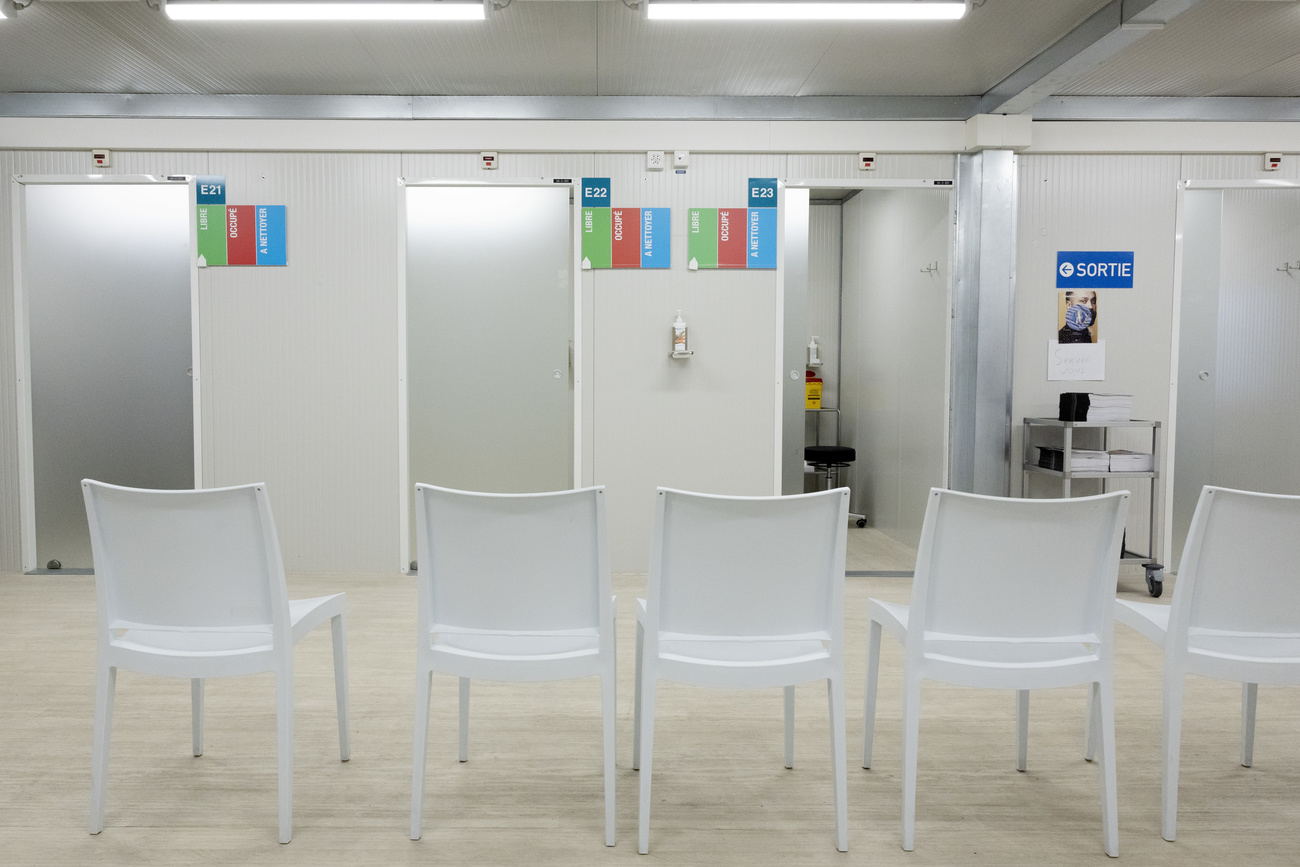
New year, new laws, new life in Switzerland

From cutting through red tape for those who want to change their name and gender to getting fairer deals for online shoppers, it’s that time of year when the Swiss government makes its New Year’s (legal) resolutions.
Changing gender
From January 1, 2022, people who identify as trans or who express a variant of gender development will be able to change their gender and first name in the civil registry “quickly and unbureaucratically”.
The declaration to the civil registry office can be made by anyone who is “inwardly firmly convinced” that they do not belong to the gender recorded in the civil registry, the government said in October. This will cost CHF75 ($82). If the person concerned is not yet 16 or is under general guardianship, or the adult protection authority has ordered this to be the case, their legal representative must give consent.
However, the government pointed out that there would still be only two options in the civil registry: female and male. The possible introduction of a third gender category or the complete waiver of gender registration are under discussion.
Same-sex marriage
In September almost two-thirds of Swiss voters backed full marriage and adoption rights for same-sex couples.
Although these couples will have to wait until July 1 to marry or convert their civil partnership into a marriage, they may submit the paperwork to get the bureaucratic ball rolling before then. From July 1, new civil partnerships will no longer be possible in Switzerland, but existing civil partnerships can continue.
However, one provision of the new law, relating to joint marital property, will enter into force on January 1. It concerns same-sex couples who have got married abroad (whose marriage is currently recognised in Switzerland as a civil partnership).

More
Podcast: Meet couples saying ‘I do’ to gay marriage
Fairer prices
Good news for consumers. From January 1, foreign online shops and services will not be allowed to discriminate against customers in Switzerland.
In 2017, campaigners collected enough signatures for a nationwide vote on the Fair Price Initiative. Parliament came up with a counterproposal, which the campaigners accepted, and which now comes into effect.
The core of the counterproposal is a ban on geo-blocking, used by retailers to prevent online shoppers from buying cheaper products or services from sites abroad. As a result of being redirected to Swiss websites, or because foreign suppliers refuse to deliver to Switzerland, firms and individuals are forced to buy products either from retailers or manufacturers in Switzerland, where prices are often much higher, or through exclusive importers.
“Whether it’s travel, holiday flats, hotels, car rentals or tickets for events, concerts, amusement parks etc., customers from Switzerland can now book abroad directly under the same conditions as a local,” says consumer protection website Konsumentenschutz.ch. “Until now, they often had to pay more for the same service.”
Free movement
Also good news for Croatians. From January 1, they will have the same rights to live and work in Switzerland as all other EU citizens (although the government can temporarily limit their numbers).
Croatia joined the European Union in 2013, but Switzerland, a signatory to the Free Movement of Persons Agreement, had until now opted out of fully opening its borders to its citizens.
Electronic tagging
Anyone affected by domestic violence, threats or stalking can now request that the aggressor be made to wear an electronic armband or ankle device.
It will thus always be possible to tell the whereabouts of the abuser, who will also have to cover the costs. This electronic surveillance, which can be ordered for a maximum of six months, is part of a wider law on protecting the survivors of violence. Individual cantons are responsible for enforcing the measure when they deem it appropriate.
In 2020, police recorded more than 46,000 violent crimes in Switzerland, including more than 20,000 domestic offences. Some 27,000 children and teenagers are affected by domestic violence every year.
Tax breaks for naughty companies
Financial penalties imposed abroad on Swiss banks or companies will be conditionally deductible as of January 1.
The Federal Act on the Tax Treatment of Financial Sanctions intends to prevent companies from being used as scapegoats for political retaliation between governments. While fines imposed in Switzerland will not be deductible, those handed down abroad will be – provided the sanctions are contrary to Swiss public policy or the company can prove that every effort was made to act in accordance with the law.
Switzerland is one of the few countries that allows such fines to be tax-deductible. Critics are unimpressed, arguing it will reward bad behaviour.

More
2021 in numbers: face coverings, floods, sugar and salt

In compliance with the JTI standards
More: SWI swissinfo.ch certified by the Journalism Trust Initiative








































Join the conversation!